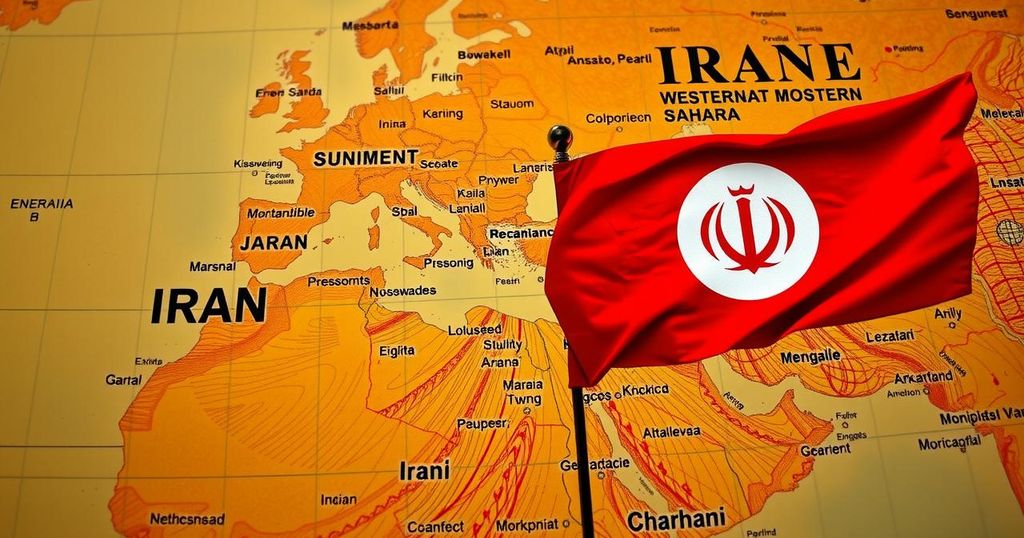Strengthening US-Moroccan Ties Amid Iranian Ambitions in Western Sahara
The election of Donald Trump is seen as beneficial for US-Moroccan relations, especially concerning Western Sahara. Trump’s previous acknowledgment of Moroccan sovereignty in exchange for diplomatic ties with Israel underscores a potential pathway for renegotiation. Additionally, countering Iranian involvement in the region remains a priority. The incoming administration should cultivate stronger security and economic ties with Morocco to inhibit Iranian ambitions while fostering stability in the region.
The election of President Donald Trump offers a promising opportunity for the reinforcement of relations between the United States and Morocco, especially with regard to the contentious issue of Western Sahara. Trump previously acknowledged Morocco’s sovereignty over this disputed territory in December 2020, a gesture that was reciprocated by Morocco restoring diplomatic relations with Israel. This development, however, calls for Morocco to provide something valuable to the US for ongoing support, particularly in counteracting Iranian influences in the region. The evolving dynamics between Morocco and Iran are significant; Iran’s backing of the Polisario Front complicates Morocco’s strategic interests, highlighting the necessity for the US to effectively engage with Morocco to curb Iranian expansion in North Africa.
Moroccan officials are inclined to seek a definitive foreign policy from the United States under Trump’s upcoming administration, especially in contrast to the perceived ambivalence of the Biden administration. This situation has been challenging due to the dual necessity for the US to maintain relations with Algeria, a Morocco adversary that provides sanctuary to the Polisario Front. With the Biden administration’s hesitance to fully reopen diplomatic engagements in Western Sahara, Morocco remains vulnerable to Iranian influence, which strategically seeks to secure footholds in the region.
The geopolitical landscape became increasingly perilous following the normalization of relations between Morocco and Israel. While Morocco strives to position itself as a bulwark against Iranian proxy influences, public sentiment currently leans toward solidarity with the Palestinian cause. Nevertheless, Moroccan leadership recognizes the strategic need for cooperation with Israel, particularly in the light of Iran’s militant alliances and threats to regional stability.
There exists a compelling case for the United States to solidify its partnership with Morocco, as an alliance would effectively disrupt Iran’s plans while also presenting significant economic opportunities. The shared strategic objectives will help mitigate potential threats from Iran and Russian-backed militias in North Africa, refining broader security policies in the region. Furthermore, a reinvigorated diplomatic relationship would facilitate investment and development initiatives, particularly in Morocco’s Atlantic Initiative to bolster economic connectivity in the Sahel region.
Ultimately, Trump’s administration holds the potential to significantly influence the equilibrium in Western Sahara, channeling collective action among allied nations against shared adversaries. As Morocco continues to navigate its diplomatic relationships and regional pressures, the forthcoming US administration is presented with an optimal moment to leverage its strategic interests while promoting stability and security in a crucial geographic area.
The geopolitical significance of Western Sahara continues to resonate in US-Moroccan diplomacy. Morocco’s claims over the territory have been validated by previous US policy, particularly under Trump’s administration, who recognized Moroccan sovereignty in exchange for Morocco’s alignment with Israel. Tensions persist, however, due to the involvement of Algeria, which supports the Polisario Front, a pro-independence movement in Western Sahara backed by Iran. The Biden administration’s cautious approach has altered the course of negotiations and could facilitate Iran gaining influence in North Africa if left unchecked. The implications of these relationships extend to security dynamics across the Sahel and pose challenges to US economic interests in the region, making a solid partnership with Morocco more critical than ever.
In conclusion, the upcoming Trump administration offers a pivotal opportunity to redefine US relations with Morocco, particularly regarding the complex issue of Western Sahara. Strengthening these ties is essential to countering Iranian influence and enabling economic collaboration. A proactive stance from the United States is crucial for fostering both regional stability and supporting Morocco in its strategic objectives. Moving decisively on this front can potentially recalibrate the balance of power in North Africa and help resolve longstanding tensions that have implications for broader US interests.
Original Source: www.atlanticcouncil.org




Post Comment